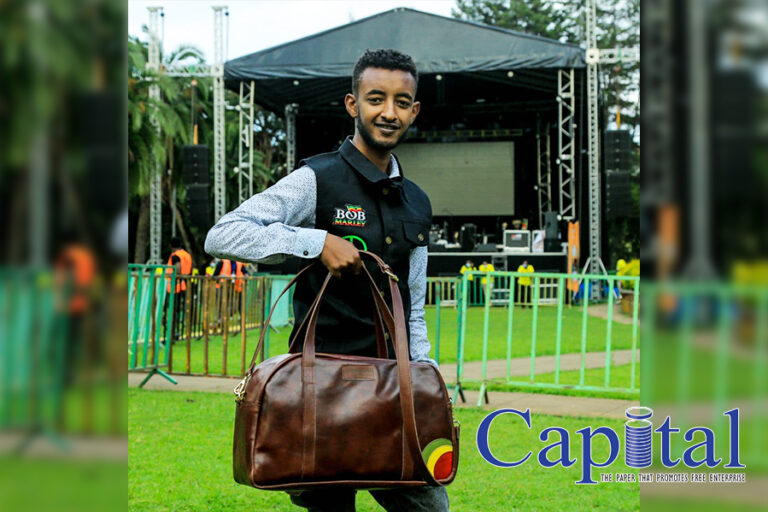Ethiopian Cargo & Logistics Services has launched a new feature that enables customers to make online reservations for their cargo. The platform enables customers check flight schedules, space availability, loadability of freight and make real-time booking of their shipment in single and convenient way on cargobooking.ethiopianairlines.com.
Ethiopian Cargo & Logistics Services is rolling out the online booking subsequent to its introduction of the mobile application to heighten its customer’s experience. The Mobile App which is available for Android and IOS, brings convenience to customers with a real-time update through a range of self-service features.
On the Mobile App, customers can check flight schedule, submit enquiry, receive notifications when the shipment is ready, book charter flights and track shipments. Ethiopian Airlines GCEO Tewolde GebreMariam said “We are pleased to offer our customers with convenience in their experience of air cargo booking. We are committed to start walking the long walk of taking out paper from entire air cargo process by digitalizing the logistics value chain. Taking out paper from logistics value chain is not only convenient and hassle free service for customers but also it delivers more efficient operational excellence and achieves long term sustainability goals.”
Ethiopian Cargo and Logistics Services Avails online air cargo booking platform
Situation in Kazakhstan discussed during a briefing in Ethiopia
Ambassador of Kazakhstan to Ethiopia, Permanent Representative of Kazakhstan to the African Union Barlybay Sadykov held a briefing for Ethiopian media journalists on the situation in Kazakhstan and the state’s measures to normalize the situation in the country.
In his speech, the Ambassador said that Kazakhstan had been subjected to armed aggression by well-coordinated terrorist groups trained abroad. The purpose of this large-scale attack was an attempt to organize an armed coup. He stressed that currently the law enforcement agencies and the Armed Forces of Kazakhstan are resisting terrorists, and not «peaceful protesters».
According to B.Sadykov, peaceful protesters are not subject to any persecution by the state. Their demands were fully heard and satisfied by the state in the first days of the protest.
It was noted that the President of Kazakhstan Kassym-Jomart Tokayev highly appreciated the results of the work of the CSTO peacekeeping mission, which effectively coped with the task of protecting strategic state facilities and plans to leave Kazakhstan within the next 10 days.
Event connecting Diaspora and local experts kicked off
An innovative event dedicated to connecting and inspiring diaspora with home-based experts from all sectors has officially started in Addis Ababa.
The event held under the theme “Connecting diaspora and home-based professionals to make a lasting Impact” showcased the power of effective partnerships in today’s fast-paced, interconnected world to provide ground-breaking results.
The two-days impactful event is organized in a way to tap into the collective knowledge of the diaspora and local experts to provide INNOVATIVE Solutions for Ethiopia’s current and future challenges.
During the opening ceremony Huria Ali, State Minister at Ministry of Innovation and Technology Highlighted that the government is focusing and making efforts in building a digital economy that will be led by the private sector, also assuring that the government will support the diaspora and the private sector’s work in the sector. In addition to this, the State Minister called on the Diaspora to engage in activities that generate foreign currency, Job opportunities for the youth while taking into consideration the demand at the Global Market.
Zerubabel Mulugea
Name: Zerubabel Mulugea
Education: Level IV
Company name: Abyssinia Leather Crafts
Title: Co-wner
Founded in: 2020
What it does: Leather products
HQ: Bole Bulbula Awash Building
Number of employees: 4
Startup Capital: 40,000 birr
Current Capital: 550,000 birr
Reasons for starting the business: Passion for fashion industry
Biggest perk of ownership: provide work opportunities
Biggest strength: Export market
Biggest challenging: Work place
Plan: Open branches in different cities
First career: None
Most interested in meeting: Elon Musk
Most admired person: Elon Musk
Stress reducer: Visiting lakes
Favorite past time: Working
Favorite book: The Monk Who Sold His Ferrari
Favorite destination: Hawasa
Favorite automobile: Hyundai



